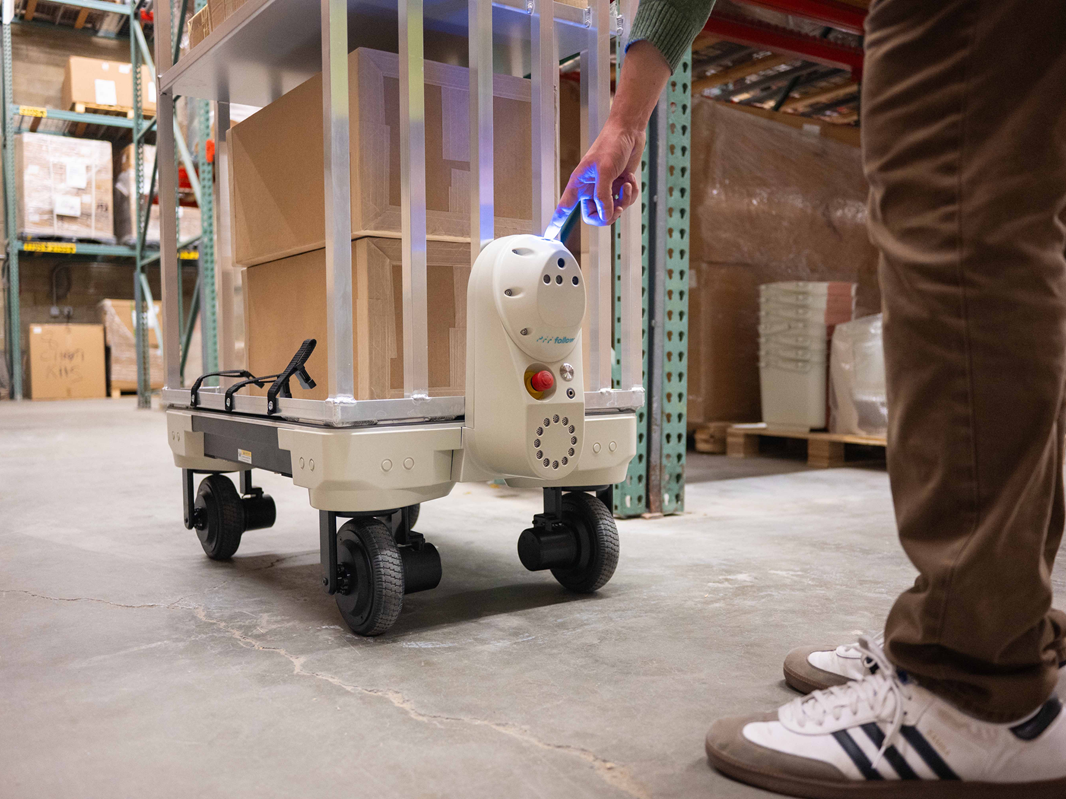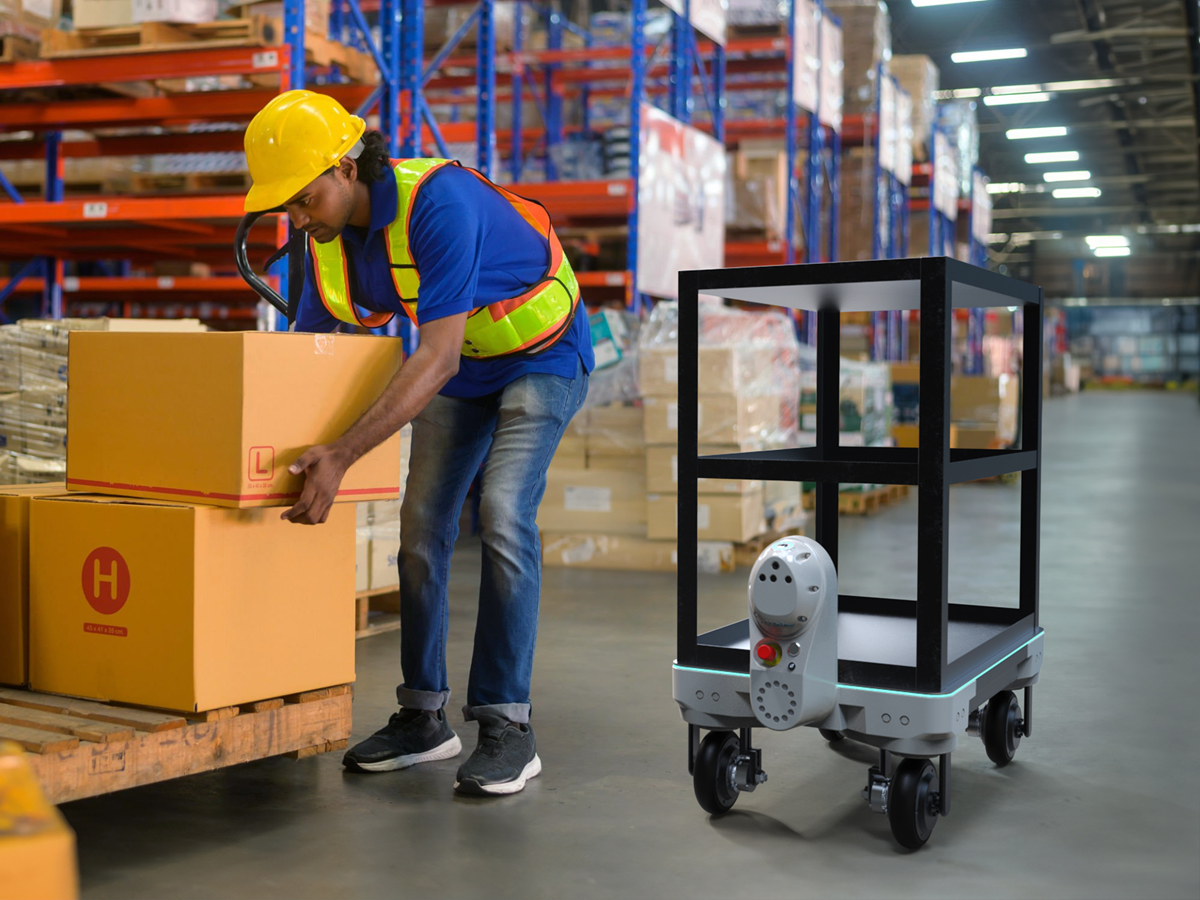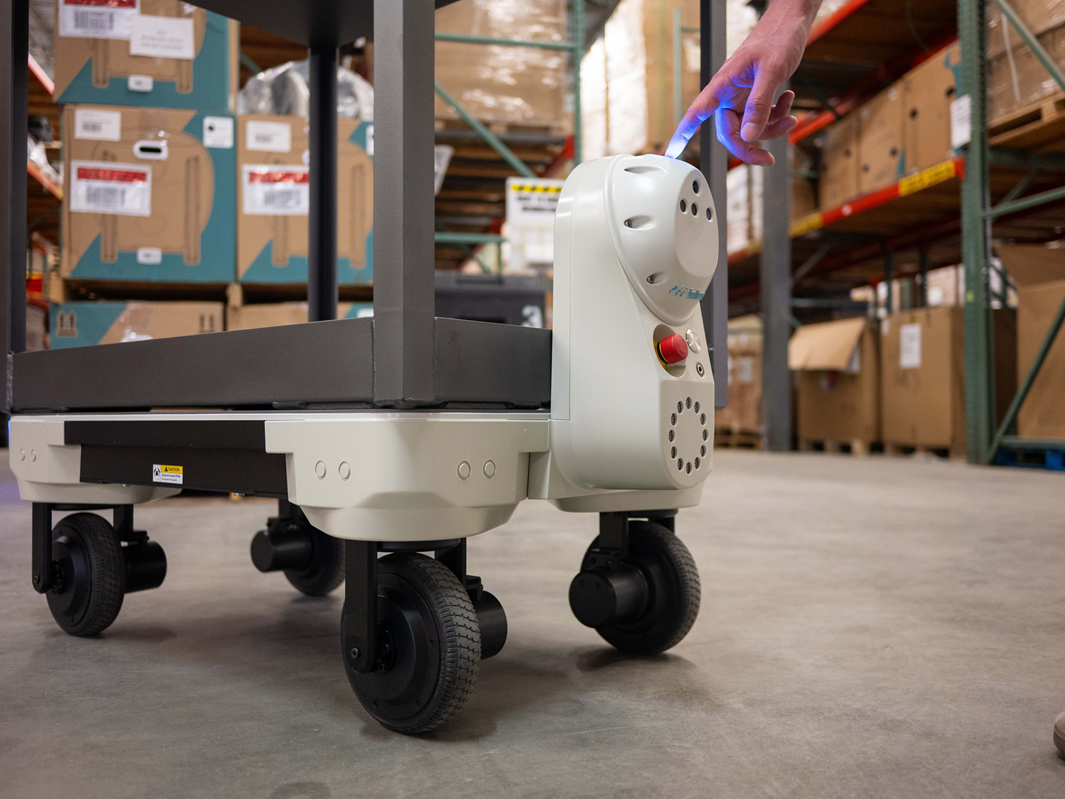- kilo™ has a payload of up to 130 kg and uses 4D radar imaging and the innovative sensors developed by PFF to follow the operator, move autonomously, and travel along more than 100 preset paths
- PFF also announces Smart Behaviors Database, the largest known motion-capture dataset of people interacting with other people and things in built environments
Boston (USA), 13 March 2025 - Piaggio Fast Forward (PFF), the Boston-based subsidiary of the Piaggio Group (PIA.MI) active in robotics and mobility for the future, has developed two innovative technologies that aim to significantly augment productivity in goods handling.
At ProMat 2025, one of the world’s leading logistics and delivery tradeshows, to be held in Chicago from 17 to 20 March, PFF will showcase its new Forward Following technology and Trips functionality on kilo™, both designed to enhance collaboration between humans and robots.
PFF Forward Following revolutionises the way robots interact with people. This groundbreaking technology enables kilo™ robots to seamlessly follow the operator regardless of the operator’s position (back follow or front follow). Through the special app developed in-house and a simple pairing connection with kilo™, the robot is able to detect the route to take.
The user-centric design was created to offer comfort, safety, and ease of use, while also addressing feedback that users prefer to have their hands free and their eyes on the robot. The ability to move the robot forward or backward provides greater flexibility and allows for more efficient handling in complex environments.
The Trips feature allows users to record specific travel paths with their kilo™ robot and store them in a library for future use. This means users can easily send robots on these pre-programmed routes autonomously.
“Our robotics technology is augmenting workforces around the world. kilo™ offers customisable options with the ability to utilise our latest software tools to manage the human-robot relationship,” said Greg Lynn, CEO of Piaggio Fast Forward. “PFF’s autonomous technology allows our robots to safely move with and around workers in complex environments, streamlining workflows and increasing productivity, in manufacturing and any industry that relies on the movement of goods,” he added.
PFF Smart Behaviors Library: the backbone of safe robotics
PFF’s Smart Behaviors Database is the largest known motion-capture dataset of people moving with other people and things in built environments, with over 10,000 sequences and 22.6 million frames of 3D motion data. This extensive database, built on human interaction rather than isolated individual motions, enables PFF robots to operate safely in shared spaces with humans. PFF’s use of Artificial Intelligence (AI) and Machine Learning (ML) applied to this database ensures predictable, tested, and certified robotic behaviours, making it possible to deploy robots safely in dynamic, real-world environments.
“At PFF, we use machine learning and AI to help us sift through millions of frames of actual human interaction in order to call out the features that are most important for both understanding the behaviour of others and exhibiting behaviour that is expected. Better social understanding and more predictable behaviour leads to safer interactions between robots and humans at a more personal level,” said Tyson Phillips, Senior Manager, Smart Behaviors at Piaggio Fast Forward.
kilo™ is a collaborative mobile robot designed to work alongside humans, eliminating the risk of repetitive motion injuries. The four-wheeled robotic flatbed has a payload of up to 130 kg and a maximum speed of 5 km/h. It was designed to enhance material movement in industries such as manufacturing, facilities management, warehousing, and logistics in general, including delivery. kilo™ is ready to use out of the box, requiring no costly infrastructure or advanced training. The kilo™ platform can be outfitted with industry-specific carts or shelving, ensuring the right configuration for any job.
Piaggio Fast Forward
Boston-based Piaggio Fast Forward (PFF) was founded in 2015 by the Piaggio Group – the Italian manufacturer of the legendary Vespa scooter – to create efficient technology solutions for human-built environments. gita®, gitamini® and kilo™, its cargo-carrying following robots, were designed for everyday consumer use. The first-of-its-kind following technology has since been adapted for mobile solutions in industries such as manufacturing, facilities management, construction, and airports.
Besides designing, producing and marketing terrestrial drones, PFF develops innovative sensors that can also be fitted on two-wheelers to provide unequalled safety, playing a vital role in accident prevention and rider protection.
The PFF Rider Assistance Solution recently made its debut on the new Moto Guzzi Stelvio adventure bike. This is the first time these radar sensors have been designed for use on a motorcycle. Compared with a traditional rider-assistance system based on ultrasound sensors, they offer an extremely broad field of vision and fully reliable monitoring, in any light and environmental conditions. The devices play a fundamental role in active safety, guaranteeing Forward Collision Warning (FCW), Blind Spot Information System (BLIS), Lane Change Assist (LCA) and Following Cruise Control (FCC) functions.



